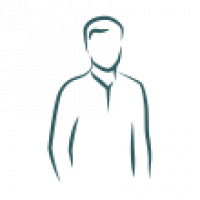FertilityCare®
with zinc, which contributes to normal fertility and folate, which contributes to maternal tissue growth during pregnancy
In stock
FertilityCare® is a unique combination of multivitamin and mineral complex, plant extracts and omega-3 food supplement including zinc, which contributes to normal fertility and reproduction.
Key benefits
- Supports reproduction
- Zinc contributes to normal fertility and reproduction.
- Regulates hormone activity
- Vitamin B6 contributes to the regulation of hormonal activity.
- Has a role in the cell division process
- Folate, zinc, iron, and vitamin B12 have a role in the process of cell division.
- Supports the formation of red blood cells
- Iron contributes to the normal formation of red blood cells and hemoglobin. Vitamins B6 and B12 both contribute to normal red blood cell formation.
- Contributes to the tissue growth during pregnancy
- Contains the natural source of folate, 5-methyltetrahydrofolate. Folate contributes to maternal tissue growth during pregnancy.
- Follows the Danish Health and Medicines Authority's recommendations
- DHMA recommends that women consume 400 µg of folic acid before pregnancy and during the 1st trimester, as well as 10 µg of vitamin D throughout the entire pregnancy.
- Easy and practical
- At La Roar we strive to make supplementation easy. That is why we develop complete solutions packed in practical daily sachets making it easier to take the daily dosage.
- Methodical selected sources
- We have searched the globe for nutrient sources and have hand-picked our raw materials. This includes among others, the Antarctic Omega-Krill™ and the natural source of vitamin C from Brazilian acerola berries.
THE CREATION
Why we created this product
When La Roar’s founders, Tine and Peter Stampe, wanted to expand their family, food supplements became a natural part of their preparation. The inspiration came from Peter’s many years of experience in the fitness world, where food supplements are commonly used to support the body after hard physical training, and of course from Tine’s many years of work in the healthcare industry.
When Tine did not find the food supplement that she envisioned, she decided to create it herself by bringing home ingredients, vitamins and minerals from abroad. Subsequently, Tine was often asked to share her recipe, which she later developed and perfected in collaboration with SUND Hub, which is part of Copenhagen Science City.
With this food supplement, we want to make it easy, efficient and safe for women to choose a supplement when they are planning to become pregnant, as well as for their first trimester of pregnancy.
Daily dose contains
Nutrition facts
Ingredients in FertilityCare®
Related products

From 3 months before conception
FertilityMan®
We take care of everything, so you only have to concentrate on one thing.
By subscribing we take care of everything and send you a package every month. You can unsubscribe at any time.
It's that easy:
1. Choose your product and subscribe to it.
2. We will send it to you every month.
3. You can unsubscribe from the subscription scheme at any time, free of charge.
4. When/if you switch product to PregnancyCare™️ or MaternityCare™️, you receive the first box free of charge.
5. You have access to 1 free E-consultation with an expert once a year.









